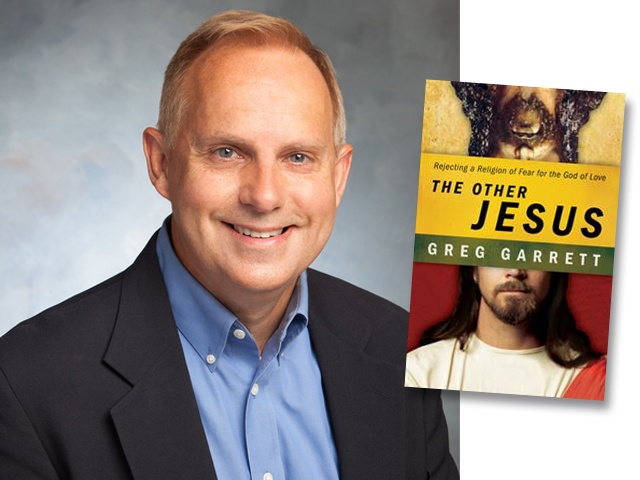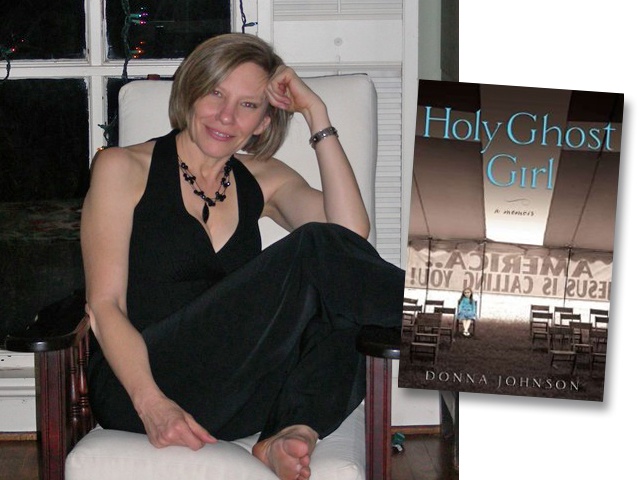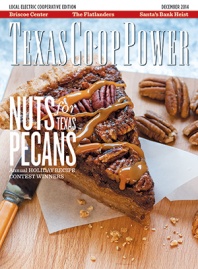With visits coming up in Comfort, Pearsall and Snyder, the Writers’ League of Texas concludes its second year of sending published authors to rural libraries across the state to discuss the craft of writing.
The program known as Texas Writes lists 11 stops on its 2014 schedule, including events in Diboll, Alpine, Wolfe City and Llano. Each visiting author shares experiences and advice with local writers and would-be writers. Texas Writes is supported by a grant from the Tocker Foundation, which is dedicated to the support of rural libraries across the state.
“This program comes at no cost to the libraries or the participants,” says Becka Oliver, executive director of the Writers’ League of Texas. “Topics covered at recent Texas Writes events include writing family history, creating believable characters, understanding metaphor, mastering dialogue and more.”
Authors Christie Craig and Donna Johnson visited with about a dozen guests in September at Palacios Library. “I was really surprised because this is such a small town,” says Vikijane Mosier, library director. “To get that many people interested in writing, I was very happy.”
Texas Writes visits the Comfort Public Library on December 6, the Scurry County Library in Snyder on January 22, 2015, and the Pearsall Public Library on January 28, 2015.
In Pearsall, Greg Garrett, a professor of English at Baylor University, will be one of the featured authors. He has written or co-written three dozen published short stories, a dozen scholarly articles and 20 books. The title of his talk will be “Inspirational Fiction Do’s and Don’ts: Writing So That People Will Listen.”
“This is one of the programs that we offer that I’m most proud of for its commitment to supporting the wonderful libraries that service our smaller towns in Texas and for its chief aim—to feed writers’ souls and build community,” Oliver says.
Meet Author Greg Garrett
‘I’m reminded every time I go out to rural Texas the depth of wisdom and human experience there is to be found in our state’
Greg Garrett, a professor of English at Baylor University, is one of the featured authors in the Texas Writes event January 28 at the Pearsall Public Library. He has written or co-written three dozen published short stories, a dozen scholarly articles and 20 books. The title of his talk in Pearsall will be “Inspirational Fiction Do’s and Don’ts: Writing So That People Will Listen.”
Garrett, who grew up in rural Oklahoma and lives in Austin, answers a few questions about Texas Writes:
Q: It’s difficult to explain how one writes, especially where the ideas and creativity come from. How do you explain the craft to budding writers?
A: Teaching people to write is about helping them find their own best practices and recognize their strengths and their own distinctive stories. When we go out to rural libraries, it’s a chance for us to remind people that their stories are important and worth telling. My job then is to offer them my own experience and mistakes and help them figure out how to be the best storytellers they are capable of being. I also think our job is to inspire. The writer’s task is a lonely one, and anytime someone can offer some encouragement, it’s important.
Q: What did you learn about yourself or about writing from talking to a group in June at the West Public Library?
A: I’m reminded every time I go out to rural Texas the depth of wisdom and human experience there is to be found in our state. In West, I found people writing all sorts of stories—or aspiring to—and thirsty for practical help doing that. In West, particularly, there was the strong undercurrent of recent heartbreak. The explosion that devastated their town had left marks on many of them, but it made our time with them that much more important. One of the most important tasks of the artist is to try to make sense out of human experience—even the most horrifying human experiences. We need writers and artists to convince us that human suffering isn’t random or meaningless, and I was inspired by the resilience I saw in the faces and heard in the voices of the folks I met there.
Q: How important is it for a love of writing—and reading—and a general passion for literary works to reach rural communities, which, geographically, make up most of Texas?
A: As rural librarians would tell you, there is already a love of writing and reading there, but I’d argue that we need to expand that passion so that more people in rural Texas can enjoy the great benefits of great art. When I’m reading a beautiful story, I feel my world expanding. I learn about things I would never have known otherwise. We teach literature in schools not just because reading and writing make us better communicators, but because they broaden our horizons. I grew up in a town of 3,000. Now I travel all over the world speaking and teaching. But my first exposure to a bigger world came in the pages of a book.
Meet Author Donna M. Johnson
‘Reading and writing connect us at the deepest level to ourselves and to our community’
Donna M. Johnson of Austin was one of the featured authors in the Texas Writes programs at the public libraries in Diboll and Palacios earlier this year. She is the author of “Holy Ghost Girl,” a memoir critically acclaimed by The New York Times and many other publications and blogs. Her Texas Writes talks were titled “Your Life as Story: Transforming the Ordinary, the Tragic, and the Dull as Dirt into Compelling Memoir.”
Q: It’s difficult to explain how one writes, especially where the ideas and creativity come from. How do you explain the craft to budding writers?
A: In my experience, most would-be writers come to classes with an idea of what they want to write. The challenge as an instructor is to help them open their minds enough to let the story unfold and change. This is especially true for memoir writers. As for teaching writing: It’s a craft and an art. An instructor’s job is to break the elements of craft apart and show how best to approach persona, tone, reflective voice, character, etc. The heartbreak for new and experienced writers is that you can do everything by the book and that doesn’t mean the story will work. That’s where the art part comes in. One can break all of the rules and still have a gripping story.
Q: What did you learn about yourself or about writing from talking to the groups in Diboll and Palacios?
A: Texas Writes takes writers into small community libraries. My participation in this program has reminded me of how much I’m a small-town girl. Going into these libraries feels like going home. I love helping folks rekindle their love for the written word. People are never ready for the event to end, and that inspires me.
Q: How important is it for a love of writing—and reading—and a general passion for literary works to reach rural communities, which, geographically, make up most of Texas?
A: Texas Writes reminds people of the excitement of reading and writing. In this day when the screen reigns supreme, it’s important to remind folks that reading and writing connect us at the deepest level to ourselves and to our community.
You can connect via social media, but you can’t explore complex ideas, and you can’t travel to another space and time and learn, not just what happened, but how it felt to the people who inhabited a particular story. For example, I knew about the horrific fact of slavery, but at a historical remove. Then I picked up Toni Morrison’s “Beloved,” and the embodied reality of slavery knocked me to the ground—as it always should have. Books have that power. Writing has that power. Even with the almighty Internet, life in a rural community can be isolating. Texas Writes reminds people that they are part of the wider world, and that they can connect to that world through the reading and writing of literature.




